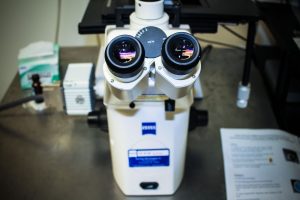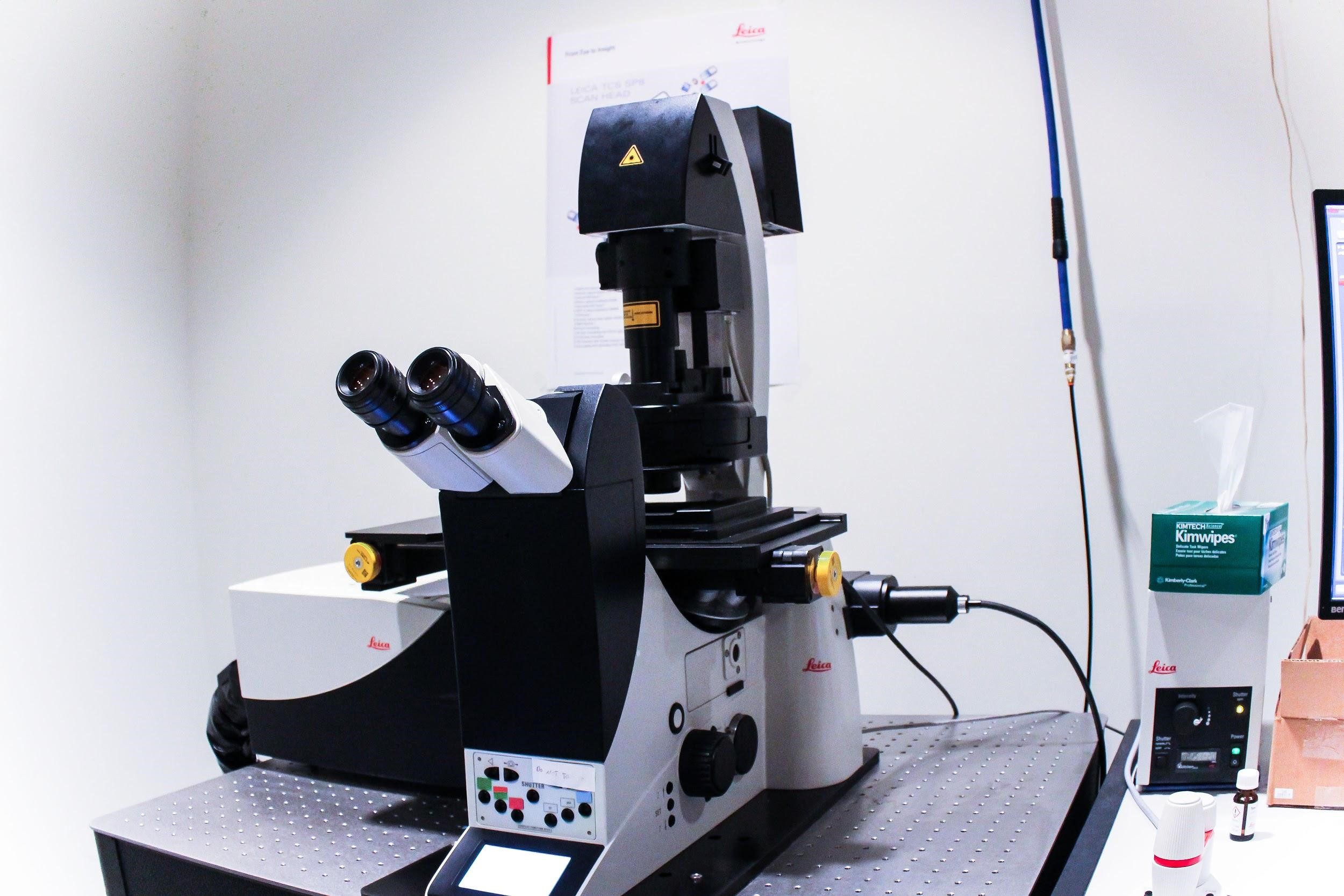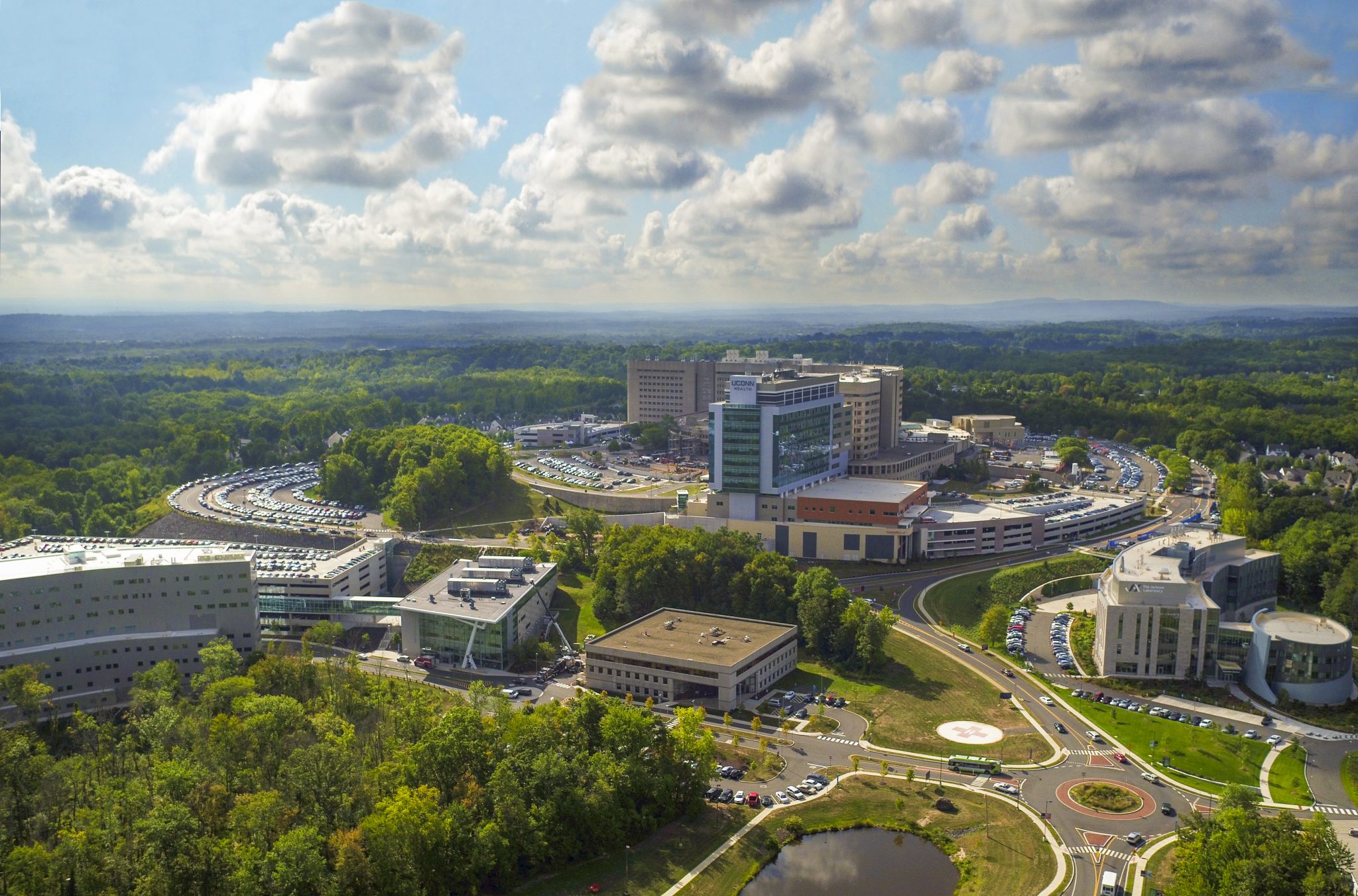It’s no secret that UConn is home to cutting-edge research and expert scientific minds. Many labs are conducting innovative, specialized research on campus. However, not all of these labs have the resources to invest in their own imaging equipment. Instead, they rely on the services and equipment provided by the Advanced Light Microscopy Facility, operated by UConn’s Center for Open Research Resources and Equipment, also known as COR2E. Neuroscientists, engineers, materials scientists, cell biologists, plant scientists, and chemists make up the majority of researchers who utilize the facility.
The Advanced Light Microscopy Facility, located in Biology/Physics Building room G05, has four microscopes, ranging in capability from basic imaging to Nobel Prize winning super resolution microscopy. Several of the instruments are capable of live-cell and live-tissue imaging to view dynamic processes in the specimens being examined. Aside from offering equipment, the facility provides general support and trains researchers to use the microscopes and prepare samples. With a strong focus on education, the facility also hosts workshops and seminars about the applications of microscopy. For instance, faculty can periodically attend workshops on digital image analysis to extract quantitative data.
According to director, Christopher O’Connell, PhD, many UConn researchers have benefitted from the Advanced Light Microscopy Facility to move their projects forward.
“When we come together with researchers, we couple their particular area of scientific expertise with our knowledge about this specialized equipment,” says O’Connell. “It’s bringing together the best of both sides of the equation to help UConn faculty make advances in their research.”

Researchers have been able to acquire funding as a result of the services utilized in this facility. Jianjun Sun, assistant professor of physiology and neurobiology, obtained an NIH grant to study regulation of ovulation using the fruit fly Drosophila, O’Connell explains. High quality images for the grant were acquired with a facility instrument, which was key to securing funding. The particular microscope was a confocal fluorescent microscope, which removes blurring to get sharper images with high contrast.
“Through the various COR2E facilities, we get to help so many talented researchers,” says Dan Schwartz, PhD, associate professor of physiology and neurobiology and director of COR2E. “But it’s worth noting that it takes talent and a lot of hard work to manage such a critical facility and train the people who utilize it. Specialized equipment is available to any research university; UConn’s real investment is in hiring top-quality facility directors like Chris who add immeasurable value to the institution.”
In O’Connell’s case, he has a unique background in both the commercial and academic side of microscopy. In addition to PhD and postdoctoral research experience, he spent four years as a product manager for a microscope manufacturer where his duties included supporting and training users of advanced microscopes.
When asked what steps researchers should take if interested in utilizing the facility, O’Connell urged them to visit the facility’s website: https://confocal.uconn.edu, which provides information about instruments, fees, and services. Researchers can also contact him directly at coconnell@uconn.edu to discuss possibilities for use of the facility.
Christopher O’Connell received his B.A. degree in biology from the College of the Holy Cross, and his Ph.D. in cell biology from Yale University. He completed his postdoctoral fellowship in cell biology at the Wadsworth Center/New York State Department of Health, receiving training in advanced applications of light microscopy. He then served as a super resolution systems product manager at Nikon Instruments for four years. Since 2015, he has held the position of director of the Advanced Light Microscopy Facility.



